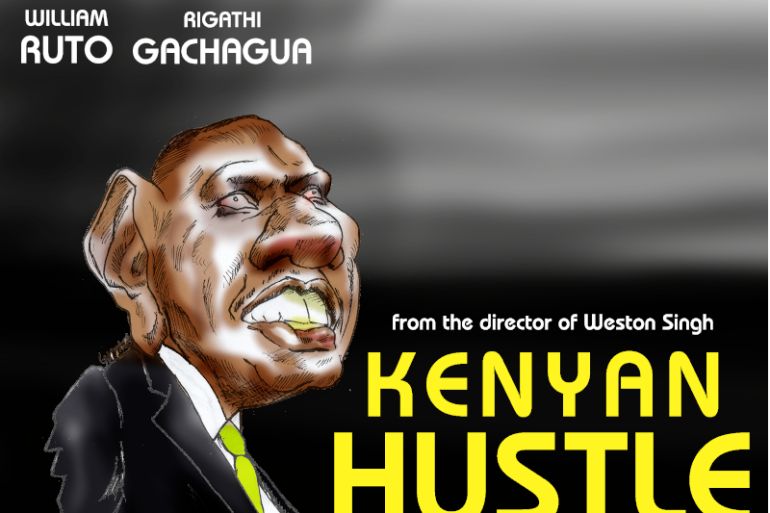The new year promises little change in Ruto’s Kenya
All evidence suggests that under President William Ruto’s rule, 2023 will see the Kenyan state settle down to its customary role of parasite and protector of elite extraction.

Like in many other cities around the world, 2023 in Nairobi was welcomed with impressive displays of fireworks. The largest of these was put on at the UAP-Old Mutual Tower in the city’s commercial district of Upper Hill. The spectacular show, which has been held every year since 2017, has become a highlight for families celebrating the new year.
One noticeable thing about the event was the absence of government. Thousands turned up to watch, blocking roads in the area, which is home to Kenya’s largest referral hospital. Apart from a small police presence, which did little to help manage the chaos, Nairobians were largely left to their own devices. That in itself is not a bad thing. The record of the Kenyan state does not exactly inspire confidence when it comes to facilitating enjoyment among Kenyans. In fact, many times, the state seems opposed to the very idea of people having fun and enjoying their city, harkening to the colonial past when Africans were only tolerated in the city as labourers for the whites. Colonial-era laws contained in county rules and regulations still prohibit “making any kind of noise on the streets… and loitering aimlessly at night”.
The governmental lack of interest in facilitating Kenyans’ living extends beyond celebrations. In his New Year message, President William Ruto, who had been in power for four months, defended his regime’s suspension of subsidies on fuel, electricity and food, arguing that shielding Kenyans from the high cost of living was unsustainable and “would cost our economy big time … We did away with the subsidies in August and I am happy that we have saved our economy a huge amount of money”.
That the government is more interested in how much it makes and saves rather than whether Kenyans can afford to eat is underlined by its push to collect more in taxes, even as much of the country struggles to afford food. “Within five years,” Ruto declared, “we will have doubled our revenues so that we can build our economy on the sound footing of our own revenues collected locally rather than being trapped in debt”.
Given that the state has not been a particularly reliable custodian of public funds, it is plainly ridiculous for Ruto to frame increases in taxes as vital to building the economy. Despite hoovering up one out of every six shillings that Kenyans generated, the previous administration, in which Ruto served as deputy president, frittered it away on vanity white-elephant projects, like building a railway next to an existing one, plunging the country into a massive debt hole. And worse, as Ruto himself admitted in 2019 while serving as deputy president, the government does not track how much of the money it takes from Kenyans is lost to corruption. The fact is it could be much more than the widely bandied estimates of about a third of all government revenue.
Further, the Ruto administration has given little reason to hope for an all-out war on theft of public resources. Ever since his election, court cases implicating his close allies in corruption, murder, and tax evasion have been mysteriously dropped by the supposedly independent Office of Public Prosecutions. It is very reminiscent of the collapse of Ruto’s and his predecessor (and erstwhile buddy) Uhuru Kenyatta’s cases at the International Criminal Court, which followed the duo’s election as deputy president and president respectively in 2013. At the time, there was a concerted campaign of witness tampering and intimidation that saw many retract their testimony, go missing or end up dead.
In fact, despite Ruto’s claims of running a different ship from his predecessor, one focused on the needs of “hustlers”, as he has branded the struggling masses, indications are that his rule will be no different and may in fact entrench some the worst impulses of former regimes. For example, although his rhetoric during the campaigns had focused on the need to strengthen the independence of institutions, especially the police, public prosecutors and the judiciary, in the first few months of his tenure, his actions have contradicted his talk. For example, he has continued Kenyatta’s disregard for the operational independence of the police stipulated in the constitution, issuing legally dubious orders to the inspector general on the organisation of the force.
Many are worried about the regime’s closeness to the judiciary, which could also undermine the latter’s independence as well as the disinterest shown in addressing governance-related failure. Even as Ruto and his allies continue to loudly proclaim that it was only divine intervention that saved his campaign, repeatedly alleging the Kenyatta administration planned to bribe or assassinate election officials to prevent him from being proclaimed the winner, there have been no calls for reform or accountability, and no moves to prosecute those involved. Promised public inquiries into the 2022 elections as well as into elite state capture appear to have been quietly shelved.
All this points to another tough year ahead for Kenyans as the state settles down to its customary role of parasite and protector of elite extraction.
The views expressed in this article are the author’s own and do not necessarily reflect Al Jazeera’s editorial stance.
